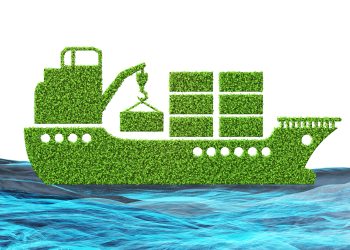Ocean plastics, coastal resilience and the Blue Economy were high on the agenda at the G7 summit in Canada earlier this month, where a commitment to support and drive ocean science and sustainability was signed. The Charlevoix Blueprint for Healthy Oceans, Seas and Resilient Coastal Communities sets out G7 commitments on ocean plastics, and creates a blueprint for the development of a more sustainable and climate-resilient future, with a focus on ocean science and transparent data utilisation.
Recognising the importance oceans play in the global climate system, supporting communities, jobs and livelihoods, food security, human health, biodiversity, economic prosperity and way of life, the Blueprint commits the G7 to:
–> Resilient Coasts and Coastal Communities
- Support better adaptation planning, emergency preparedness and recovery
- Support innovative financing for coastal resilience
- Launch a joint G7 initiative to deploy Earth observation technologies and related applications to scale up capacities for the integrated management of coastal zones
–> Ocean Knowledge: Science and Data
4. Increase the availability and sharing of science and data:
We encourage the collection, analysis, dissemination and use of gender-sensitive data to bridge gaps in understanding the way women and girls are impacted by risks and catastrophic events, and how they can be engaged in developing and implementing solutions.
–>Sustainable Oceans and Fisheries
- Address IUU fishing and other drivers of overexploitation of fish stocks
- Support strategies to effectively protect and manage vulnerable areas of our oceans and resources
–> Ocean Plastic Waste and Marine Litter
We recognise the urgency of the threat of ocean plastic waste and marine litter to ecosystems and the lost value of plastics in the waste stream. We commit to building on previous G7 commitments and taking a lifecycle approach to plastics stewardship on land and at sea, moving towards a more resource efficient and sustainable management of plastics. Further, we will promote the harmonization of monitoring methodologies for marine litter and collaboration on research on its impacts, in cooperation, for example with the United Nations Environment Programme (UNEP) to facilitate this work.
Annex: Ocean Plastics Charter
The current approach to producing, using, managing and disposing of plastics poses a significant threat to the environment, to livelihoods and potentially to human health. It also represents a significant loss of value, resources and energy.
We, the Leaders of Canada, France, Germany, Italy, the United Kingdom, and the European Union, commit to move toward a more resource-efficient and sustainable approach to the management of plastics. We resolve to take a lifecycle approach to plastics stewardship on land and at sea, which aims to avoid unnecessary use of plastics and prevent waste, and to ensure that plastics are designed for recovery, reuse, recycling and end-of-life management to prevent waste through various policy measures.
- Sustainable design, production and after-use markets
- Working with industry towards 100% reusable, recyclable, or, where viable alternatives do not exist, recoverable, plastics by 2030.
- Taking into account the full environmental impacts of alternatives, significantly reducing the unnecessary use of single-use plastics.
- Using green public procurement to reduce waste and support secondary plastics markets and alternatives to plastic.
- Working with industry towards increasing recycled content by at least 50% in plastic products where applicable by 2030.
- Supporting secondary markets for plastics including using policy measures and developing international incentives, standards or requirements for product stewardship, design and recycled content.
- Working with industry towards reducing the use of plastic microbeads in rinse-off cosmetic and personal care consumer products, to the extent possible by 2020, and addressing other sources of microplastics.
- Collection, management and other systems and infrastructure
- Working with industry and other levels of government, to recycle and reuse at least 55% of plastic packaging by 2030 and recover 100% of all plastics by 2040.
- Increasing domestic capacity to manage plastics as a resource, prevent their leakage into the marine environment from all sources, and enable their collection, reuse, recycling, recovery and/or environmentally-sound disposal.
- Encouraging the application of a whole supply chain approach to plastic production toward greater responsibility and prevent unnecessary loss, including in pre-production plastic pellets.
- Accelerating international action and catalyzing investments to address marine litter in global hot spots and vulnerable areas through public-private funding and capacity development for waste and wastewater management infrastructure, innovative solutions and coastal clean-up.
- Working with relevant partners, in particular local governments, to advance efforts to reduce marine litter and plastics waste, notably but not exclusively in small island and remote communities, including through raising awareness.
- Sustainable lifestyles and education
- Strengthening measures, such as market-based instruments, to prevent plastics from entering the oceans, and strengthening standards for labelling to enable consumers to make sustainable decisions on plastics, including packaging.
- Supporting industry leadership initiatives and fostering knowledge exchange through existing alliances and other mechanisms.
- Promoting the leadership role of women and youth as promoters of sustainable consumption and production practices.
- Support platforms for information sharing to foster awareness and education efforts on preventing and reducing plastic waste generation, plastics pollution and eliminating marine litter.
- Research, innovation and new technologies
- Assessing current plastics consumption and undertaking prospective analysis on the level of plastic consumption by major sector use, while identifying and encouraging the elimination of unnecessary uses.
- Calling on G7 Ministers of Environment at their forthcoming meeting to advance new initiatives, such as a G7 Plastics Innovation Challenge, to promote research and development of new and more sustainable technologies, design or production methods by the private sector and innovators to address plastics waste in the oceans with a focus on all stages of the production and supply chain.
- Promoting the research, development and use of technologies to remove plastics and microplastics from waste water and sewage sludge.
- Guiding the development and appropriate use of new innovative plastic materials and alternatives to ensure they are not harmful to the environment.
- Harmonizing G7 science-based monitoring methodologies.
- Collaborating on research on the sources and fate of plastics and their impact on human and marine health.
- Coastal and shoreline action
- Encouraging campaigns on marine litter in G7 countries with youth and relevant partners to raise public awareness, collect data and remove debris from coasts and shorelines globally.
- Accelerating implementation of the 2015 G7 Leaders’ Action Plan to Combat Marine Litter through the Regional Seas Programs, initiatives led by RFMOs, where appropriate, and targeted investments for clean-up activities that prove to be environmentally sound in global hotspots and priority areas, in particular on Abandoned, Lost or Otherwise Discarded Fishing Gears (ALDFG) and wastes generated and collected by fishery activities.
Explore more herebelow:

































































